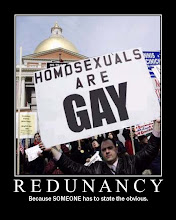Respect is one of the most important aspects of a Parent-Child relationship, and if a parent fails to adequately show respect for their next of kin, than that child could grow up thinking that they should teat others in the same manner. Both Neil Millar's "The Most Powerful Question a Parent Can Ask..." and Budge Wilson's "Be-ers and Doers" show examples of Parent-Child relationships. Although both show a distinct approach to parenting, "The Most Powerful Question a Parent Can Ask..." manages to show a more respectful style of parenting than "Be-ers and Doers."
Neil Millar's "The Most Powerful Question a Parent Can Ask..." attempts to persuade readers to give their children responsibility, instead of taking care of every aspect of life for them. Contrary to what some children may think when met with responsibilities such as cooking dinner, or doing the laundry, these acts can help a child learn to survive later in life. Millar expresses that "A Maasai tribe leader appointed a seven year-old girl as the person in charge of two-thirds of his villages wealth... Maybe we could trust our children with a vacuum or a mop or a duster twice a week!" That being seen as quite a stretch for many parents, they could always "begin by directing [their] children to take on small tasks." Many parents choose to take complete care of their children, and become a "nanny" of sorts, instead of a parent. Millar expresses that parents instead "have a responsibility to first nurture, then educate [their children], then, as soon as they are ready, hand over responsibility for their well-being to them." If a parent refuses to do such, and care not for their children's future needs, than they may become people who tend to "[disrespect] both other human beings and the environment."
Budge Wilson's "Be-ers and Doers" shows a mostly unfavourable, but yet surprisingly common, form of parenting where the parents wish to mold their children, as if clay, to their own idea of what they should become. This approach is generally unstable, and does not succeed much, due to the child's needs and wants being neglected in favour of the parents ideals of what they should become. As early on as the baby is born, the mother had "made up her mind that Albert was going to be a perfect son." This is a potentially fatal mistake, as the mother has no clue as to what the child's interests will even be, and does not care either way, so long as she gets the child she wants. Once Albert became a teenager, he "[could not] see [any] sense in workin' hard at something [he will] never use." He is content with what he has, and does not have any aspirations of somehow becoming great, although he did do well in English Class, and enjoyed literature. Albert had chosen, by the time that he became 15, that he admired his father and his way of life more than his mother; not surprising when you factor in all the nagging he is forced to endure from her. Three years later, after saving his family from a potentially horrible fire, of which Albert saved his family from, his mother expresses that "[she is] just proud of [Albert.] So terrible proud!" Albert, seeing the actual meaning behind this states that "[He's] not gonna be what [his mother wants]... [He's] gonna be [himself,]" showing that he has finally declared his revolt to his mothers iron-fisted rule over his conscience, his thoughts, and his future.
It is true that respect is a necessity of any relationship, and should not be taken for granted. Budge Wilson's "Be-ers and Doers," and Neil Millar's "The Most Powerful Question a Parent Can Ask..." show very opposing ideals of how one should parent their children, but there is no doubt that Neil Millar expresses a much more respectful approach to being a parent.
Thursday, January 14, 2010
Subscribe to:
Post Comments (Atom)

MMORPG
ReplyDeleteinstagram takipçi satın al
Tiktok Jeton Hilesi
Tiktok Jeton Hilesi
Sac ekim antalya
İNSTAGRAM TAKİPCİ SATIN AL
instagram takipçi satın al
metin2 pvp serverlar
instagram takipçi satın al
Perde modelleri
ReplyDeletesms onay
Türk telekom mobil ödeme bozdurma
Https://nftnasilalinir.com
ankara evden eve nakliyat
trafik sigortası
dedektör
web sitesi kurma
aşk kitapları